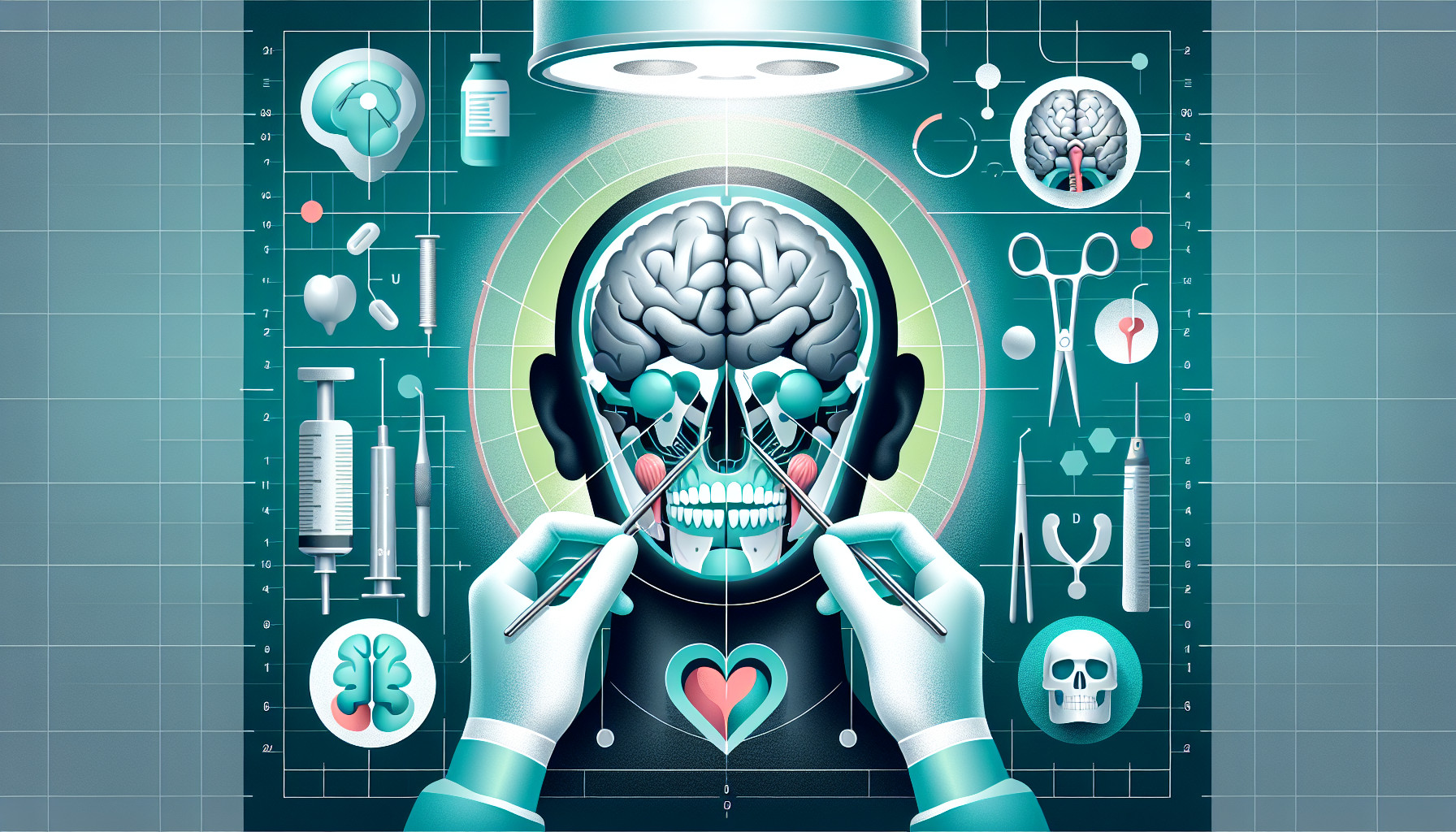Our Summary
This study aimed to understand how jaw surgery affects a person’s mental health. The researchers looked at 119 patients (38 men and 81 women, with an average age of 25.5 years) who had undergone jaw surgery. The patients were categorized based on the severity and type of their jaw deformity, as well as whether their jaw was symmetrical or not.
The researchers used a psychological test called the Minnesota Multiphasic Personality Inventory (MMPI) to assess the patients’ mental health before and at least six months after the surgery. They found that before surgery, the patients scored higher than average on measures of depression, hysteria, anxiety, and social introversion, and lower on a measure of hypomania (a less severe form of mania). After surgery, their scores on measures of depression and hysteria significantly decreased.
When the researchers compared the scores of the different patient groups, they found that the patients with the most severe type of jaw deformity had higher levels of depression than the other groups. However, there was no significant difference in the mental health scores of patients with symmetrical and asymmetrical jaws.
In simple terms, the study suggests that jaw surgery can improve the mental health of patients with jaw deformities, particularly those with a severe type of deformity.
FAQs
- What is the impact of orthognathic surgery on a patient’s psychological status?
- Does orthognathic surgery have different psychological effects on patients with different types of jaw deformities?
- How was the psychological status of patients assessed in this study on the impact of orthognathic surgery?
Doctor’s Tip
A helpful tip a doctor might tell a patient about jaw surgery is to expect some changes in their psychological status following the procedure. It is common for patients to experience improvements in their mood and overall well-being after orthognathic surgery. However, it is important to be patient and give oneself time to adjust to the changes in appearance and function. It is also recommended to communicate openly with your healthcare provider about any concerns or emotions you may be experiencing during the recovery process.
Suitable For
Patients with jaw deformities, specifically those with skeletal class III malocclusion, are typically recommended for orthognathic surgery. This includes patients with asymmetrical jaw structure and those with severe malocclusion affecting their bite and facial aesthetics. Additionally, patients who experience psychological distress as a result of their jaw deformity may also benefit from orthognathic surgery to improve their overall psychological status.
Timeline
Before jaw surgery:
- Patient consults with orthodontist and oral surgeon to discuss treatment options.
- Patient undergoes comprehensive orthodontic evaluation and treatment planning.
- Patient may undergo pre-surgical orthodontic treatment to align teeth and prepare for surgery.
- Patient undergoes pre-surgical medical evaluations and tests to ensure they are a good candidate for surgery.
- Patient attends pre-surgical counseling to discuss expectations, risks, and recovery process.
After jaw surgery:
- Patient undergoes orthognathic surgery to correct jaw deformities.
- Patient may experience swelling, bruising, and discomfort in the days following surgery.
- Patient follows a strict post-operative diet and oral hygiene regimen to promote healing.
- Patient attends follow-up appointments with oral surgeon and orthodontist to monitor progress and make adjustments as needed.
- Patient undergoes post-surgical orthodontic treatment to fine-tune bite alignment and ensure optimal results.
- Patient experiences improved facial aesthetics, function, and overall quality of life following successful jaw surgery.
What to Ask Your Doctor
- What specific jaw deformity do I have and how will the surgery correct it?
- What are the potential risks and complications associated with jaw surgery?
- What is the expected recovery time and post-operative care plan?
- How will my bite and facial appearance be affected by the surgery?
- Will I need additional dental or orthodontic treatment before or after the surgery?
- How will jaw surgery impact my speech and ability to chew food?
- Will I need to follow a special diet or make any lifestyle changes after the surgery?
- What are my options for anesthesia during the surgery?
- How experienced is the surgical team in performing orthognathic surgery?
- What are the long-term results and potential benefits of undergoing jaw surgery?
Reference
Authors: Takatsuji H, Kobayashi T, Kojima T, Hasebe D, Izumi N, Saito I, Saito C. Journal: Int J Oral Maxillofac Surg. 2015 Sep;44(9):1125-30. doi: 10.1016/j.ijom.2015.02.003. Epub 2015 May 21. PMID: 26004311
